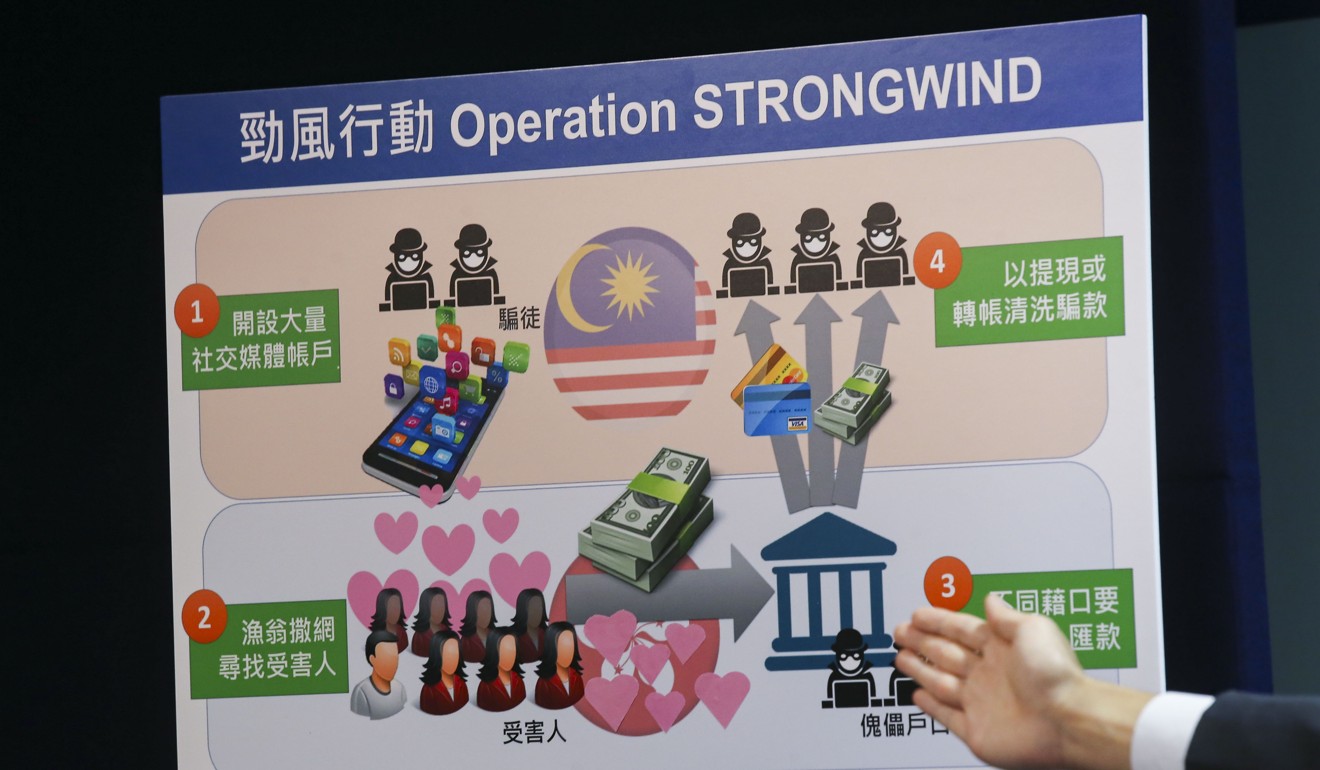
Exclusive | Woman living in Hong Kong public housing conned out of HK$26.4 million by ‘financial analyst in Malaysia’
Swindler pretended to be financial analyst in Malaysia and convinced victim, 56, to borrow millions from family, friends, and banks
A 56-year-old woman living in public housing has become the biggest victim of online love scams in Hong Kong, losing HK$26.4 million (US$3.3 million) in just 18 months.
The victim, who is a supervisor in the accounts department of a local trading company, blew her life savings on her long-distance lover before borrowing millions from family, friends and banks, according to sources.
She finally realised she was being duped in February and contacted the police anti-fraud squad, which managed to freeze just HK$2 million in local bank accounts.

Both cases had striking similarities, with the con artists befriending the women over the internet, gaining their confidence and convincing them to send large sums of money to bank accounts in Hong Kong and overseas.
In the latest case the fraudster, who posed as a financial analyst in Malaysia, befriended the Sha Tin resident on Facebook in June 2016, and first asked for money in July of that year.
“After establishing a relationship the fraudster claimed his HK$80 million in assets had been frozen by authorities in Malaysia because he failed to pay a handling fee,” a police source said.
“In the beginning, he asked the victim to pay US$1,000 for the fee, and then he invented other excuses to borrow more money.
Con artists dupe 630 consumers in Hong Kong out of HK$12.5 million in online shopping scams in first four months of 2018
“After using up all her HK$1 million savings, she applied for loans from banks, and borrowed money from friends and family.
“She realised she was being cheated after she failed to borrow more money, and did not receive any repayment from her so-called lover.”
Ultimately the woman was persuaded to transfer more than HK$26 million into accounts in Hong Kong, Malaysia and elsewhere in more than 300 transactions between July 2016 and January 2018.
Police are hunting for the holders of the bank accounts used to collect the money, but no one has been arrested so far.
The police Anti-Deception Coordination Centre, which began work in July last year, has received nearly 900 requests to halt payments from victims of online and phone scams, totalling more than HK$2.2 billion.
It has helped to freeze about HK$340 million from more than 200 cases before the money was transferred out of the scammers’ bank accounts.
Chinese man held over ‘online dating scam using voice manipulation device’
The woman in the latest scam was among 159 people who were cheated in similar fashion in the first four months of this year, twice the number of the victims for the same period last year.
According to police, 119 people were cheated out of HK$75.9 million in online love scams in the first three months of this year, with fraudsters bagging HK$14.6 million from 36 victims in the same period last year.
It is not just individuals falling prey to con artists. A second police source said the Hong Kong branch of a European finance investment company had been conned into transferring US$2 million into a bank account in mainland China last Friday.
Police managed to recover the swindled money with the help of colleagues in Shenzhen after the company reported the scam on Monday.
The source revealed that the scammer had pretended to be the chief executive from the company headquarters in Europe, and sent an email to a senior executive at the Hong Kong branch requesting the transfer of US$2 million into the account.
The Hong Kong office made the transfer on the same day. No one has been arrested so far.

